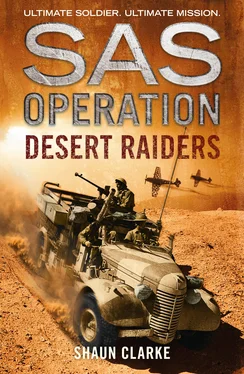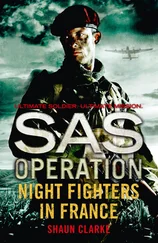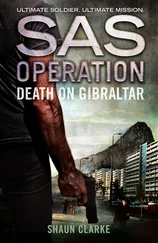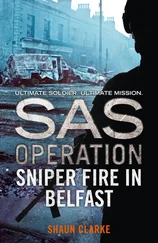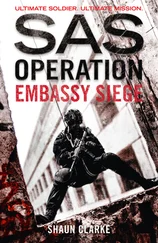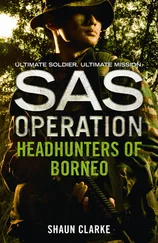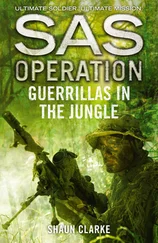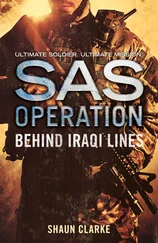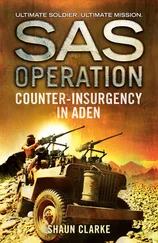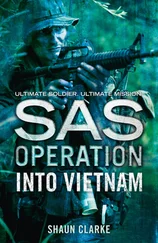‘The tanks!’ Reynolds bawled, rising himself to his knees and jabbing his finger to the front.
Sitting up, Lieutenant Greaves saw the Mark III and Mark IV tanks of the Afrika Korps Panzer divisions emerging from a billowing cloud of dust, spread out over half a mile, followed by motorized infantry and six-wheeled armoured cars.
‘God, there’s a lot of them!’ Greaves exclaimed.
‘Too many,’ Reynolds sighed. ‘They must have broken through our defensive boxes, forming a wall between them and us, which means the boxes won’t be able to help us now.’ He turned away from Greaves and bawled for the nearest radio operator to come and join him. When a sand-smeared 4th Armoured Division corporal with a No 11 wireless set had crawled up to Reynolds, the latter grabbed the wireless mouthpiece, contacted the tank commander of the Royal Gloucester Hussars and told him to move out. Still holding the wireless mouthpiece, but with the switch turned off, he looked back to the front. ‘Let us pray,’ he whispered.
As falling shells exploded between the German tanks, the enemy’s 55mm and 77mm guns opened fire, creating a curtain of smoke and fire. With the British guns responding in kind, the noise was truly hellish and made marginally worse when the Grants moved out between the gun pits and sangars, to engage the Germans on the open ground beyond the perimeter.
The Panzers emerged from their own smoke with pennants fluttering from wireless aerials and their treads churning up sand, gravel and billowing clouds of dust. Assuming hull-down positions, they blasted the Grants, which were advancing with their 37mm and 75mm main guns firing at once, creating another nightmarish curtain of fire-streaked, streaming smoke.
The battle was awesome, like the clash of dinosaurs, the tanks obscured in the swirling smoke and boiling sand resembling hunchbacked, fire-spitting beasts. But it was a battle in which the odds were distinctly against the British, who were greatly outnumbered and lacked the practised skills of the Germans. The advancing Grants were soon stopped in a gigantic convulsion of erupting soil, swirling smoke and raining gravel, many of them exploding internally, others losing their treads, the rest peppered by 55mm and 77mm fire, which also cut down the men trying to escape.
‘Oh, my God,’ Greaves said to Reynolds. ‘It’s a slaughter.’
Major Reynolds responded by switching on the wireless mouthpiece and ordering the Bren carriers to move out. As the Grants were exploding, bursting into flames, shuddering and belching oily black smoke, with the survivors clambering down from the turrets, some on fire and screaming dementedly, the Bren carriers moved out to give them cover. While the Bren guns roared, spraying the German tanks and the infantry moving up behind them, the Tommies fired their .303s and M1 Thompson sub-machine-guns on the move from the open-topped armoured vehicles. Unfortunately, they too were slaughtered by the Panzers’ guns, many falling right out of the carriers and slamming into the sand.
The British gun batteries then unleashed a heavy concentration that made the German Mark IIIs and Mark IVs withdraw slightly. But they did so only long enough to let their infantry move against the flank exposed by the advance of the British Bren carriers. Reynolds immediately called up the Northumberland Fusiliers, who soon arrived with their heavy guns and temporarily plugged the gap, allowing the survivors of the Bren carriers to make their way back inside the perimeter as darkness fell.
‘Incoming message for you, Major,’ the radio operator said. Reynolds listened to the earpiece, then handed it back to the corporal and turned to Greaves. ‘We’re pulling out, Lieutenant. Back to Tobruk. Let’s get up and go.’
With the German tanks temporarily withdrawn, they were able to evacuate the camp under cover of darkness. Soon the tanks, Bren carriers, armoured cars, Bedford trucks, jeeps and marching men formed a vast column on the road leading back through the desert to the harbour town of Tobruk. Unfortunately, with too many units on the move at the same time, there was an almost palpable sense of panic, with many men abandoning the all too frequently stalled trucks and running to get on others without bothering to check what was wrong with theirs. Other vehicles were abandoned when they ran short of petrol – even though there were many three-ton trucks loaded with petrol passing by on either side. This, too, was a sign of growing panic.
Eventually, however, without being fired on by the German big guns or dive-bombed by the Stukas, the men found themselves inside the perimeter of Tobruk, mingling with the Aussies, who directed them to numerous positions along the wired perimeter, between gun pits and slit trenches. The tanks and trucks were lined up behind the wire to afford further protection.
‘You’ve got to hold that position at all costs,’ Major Art Wheeler, 6th Australian Division, said to Reynolds. ‘That’s the order I’ve just received from the gabardine swine. Fat lot those bastards know!’
Spitting in the sand, Wheeler stomped off to supervise the activities of his men. Greaves and Reynolds did the same with their own men before taking cover behind their jeep. They had barely done so when German infantry broke through the wire a mere hundred yards away and surged forward through the moonlit darkness.
‘JERRY!’ someone yelled again.
A British lieutenant with a corporal and five troopers rushed out to meet the Germans, charging against heavy machine-gun fire. Two of the troopers went down, convulsing as the bullets struck them, but the others managed to reach the first of the advancing Germans, killing some with their bayonets before succumbing themselves to bayonet and bullet. The rest of the Germans then rushed through the gap, ghostlike in the smoke-filled darkness, followed by the tanks, which headed straight for the British gun positions, located three miles inside the perimeter.
About forty tanks managed to get through before the Tommies could bring up enough men to engage the enemy infantry and gunners who were trying to bring their guns through the gap. The Tommies shot up their crews before they could get into action and the Aussies, fierce fighters as always, did the same along the barbed-wire perimeter.
One German was trapped on the wire, bent belly-down over it, screaming in agony. ‘Put that bastard out of his misery!’ one of the Aussies shouted and another, not hesitating, rammed his bayonet down through the soldier’s spine, slamming him deeper into the barbed wire so that he kicked convulsively before he was silenced for all time. The Aussie withdrew his bayonet with a jerk, then dropped to his knees, raised his rifle to his shoulder and started firing again at the advancing Germans, ignoring the bloody, twisted corpse on the wire beside him.
‘Those Aussies are impressive,’ Greaves said. ‘I’m glad they’re on our side.’
‘Damn right,’ Reynolds replied.
After the tanks went through, the gap was closed and no German guns or infantry got past the Tommies or Aussies.
‘Let’s get back to the defensive line,’ Reynolds said. ‘Leave the men to mop up here.’
While the medics raced out to the closed gap to tend to the dead and wounded, Greaves followed the major to his jeep, climbed in beside him, and was driven away from the perimeter, following the three-mile route taken by the Panzers. As the tanks could only travel at thirty miles per hour, the jeep soon caught up with them and Reynolds raced boldly between them, determined to reach the British defensive line before the Germans. He had just driven up over the crest of a low hill, giving a clear view of the British six- and 26-pounders, when the tanks behind him opened fire and one of the first shells came whining down to explode with a mighty roar.
Читать дальше
